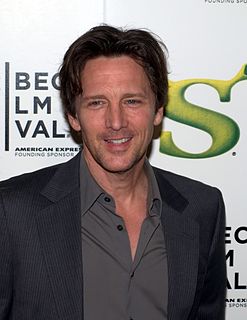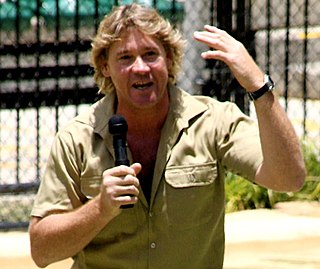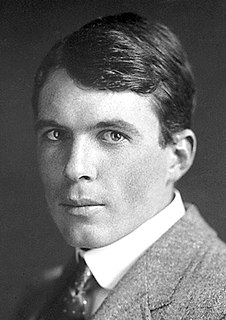A Quote by Richard Dawkins
There are many religious points of view where the conservation of the world is just as important as it is to scientists.
Quote Topics
Related Quotes
I'm a skeptic. ...Global Warming it's become a new religion. You're not supposed to be against Global Warming. You have basically no choice. And I tell you how many scientists support that. But the number of scientists is not important. The only thing that's important is if the scientists are correct; that's the important part.
I am optimistic globally. So many scientists are working frantically on the reparation of our planet. Unfortunately there are countries who are still destroying it, but we really hope the conservation message rubs off in our film. Every cent we earn from Crocodile Hunter goes straight back into conservation. Every single cent.
You ask people, do you pray to [a person or] God. If you say yes to that, you're religious by, presumably, anybody's standards of your conduct. And it's the yes to that question that applies to 40% of scientists. So, there're plenty of atheists who are scientists or not scientists. There maybe a conflict but many people in this country coexist in both worlds.
I feel very strongly indeed that a Cambridge education for our scientists should include some contact with the humanistic side. The gift of expression is important to them as scientists; the best research is wasted when it is extremely difficult to discover what it is all about ... It is even more important when scientists are called upon to play their part in the world of affairs, as is happening to an increasing extent.
Democracy cannot survive where there is such uniformity that everyone wears exactly the same intellectual uniform or point of view. Democracy implies diversity of outlook, a variety of points of view on politics, economics, and world affairs. Hence the educational ideal is not uniformity but unity, for unity allows diversity of points of view regarding the good means to a good end.
It's easier to change a law than an age-old mentality. Deep down, many prejudices, many hostilities, many fears persist. But if we take a look at all the peoples in the world, we have to realize that the condition of women is very backward and sometimes very sad, from both the social and psychological points of view.
When you're dealing with a problem as complex as autism, you have to look at it from many different points of view and assemble evidence from many different vantage points. Biological evidence in humans and in animals, toxicologic evidence, how does the body deal with toxins, and evidence looking at the actual experience in populations.
As a child, I had no interest in science whatsoever - then I started writing and recognized how relevant it was. My first book about science and medicine captured the world of organ transplantation in 1989 from the points of view of all of the participants - scientists, surgeons, social workers, organ recipients and even donor families.




































